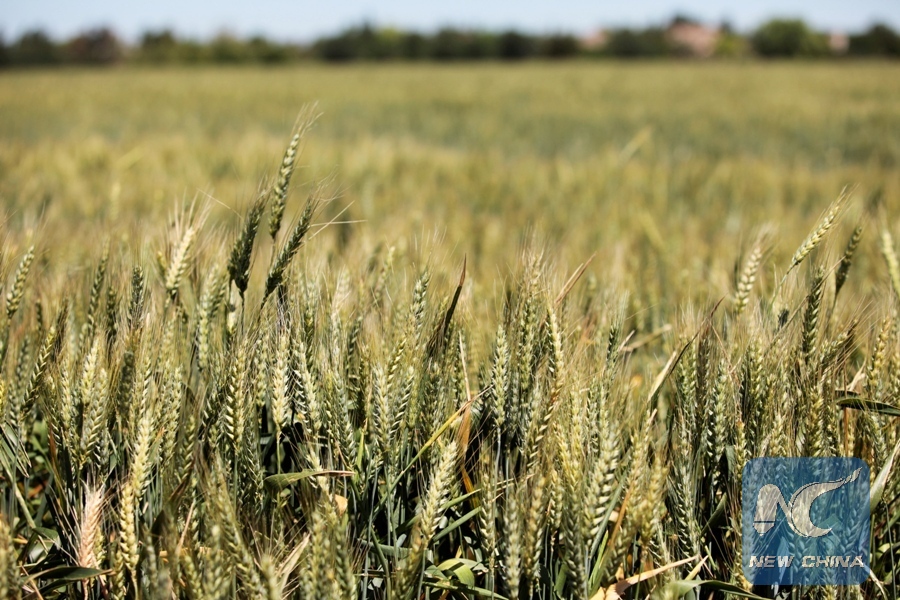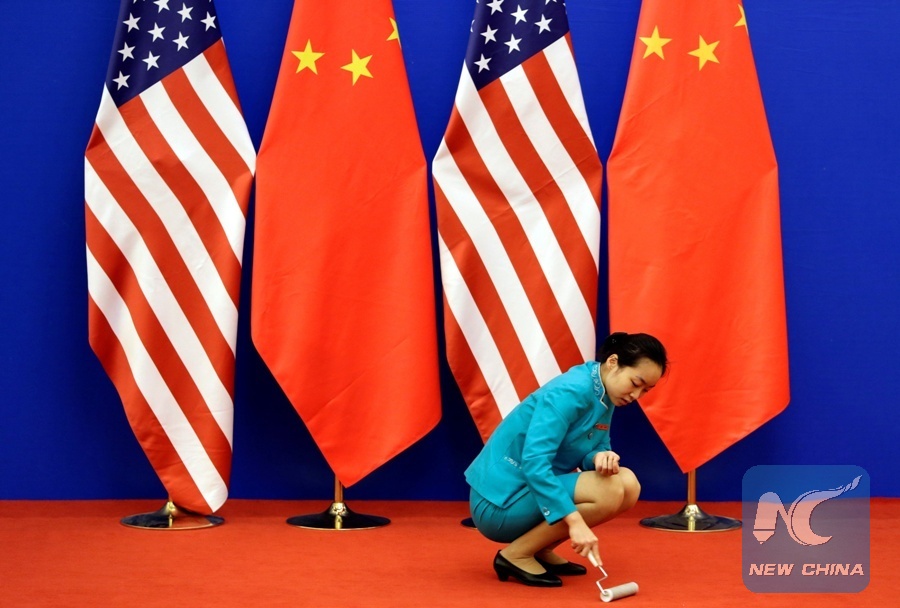
Soybeans being sorted according to their weight and density on a gravity sorter machine at Peterson Farms Seed facility in Fargo, North Dakota, U.S., Dec. 6, 2017. (Xinhua/REUTERS)
by Xinhua writers Wang Ping, Miao Zhuang
DES MOINES, United States, March 28 (Xinhua) -- Soybean farmers in Iowa are concerned about a possible trade war between the United States and China, which will see no winner, an official of the Iowa Soybean Association (ISA) said.
Last Thursday, U.S. President Donald Trump signed a memorandum that could impose tariffs on up to 60 billion U.S. dollars of imports from China, the latest unilateral move that is likely to cause trade retaliation.
"We were disappointed to see that these actions have been taken. Of course we did not want to see any kind of trade disruptions," Grant Kimberly, marketing director of ISA, told Xinhua.
PRIME MARKET
Global soybean imports are expected to reach 151 million tonnes this year, of which China will import 97 million, or 64 percent, according to Peter Meyer, senior director of agricultural analytics at S&P Global Platts.
The United States provides close to 60 percent of the global soybean production and Iowa provides approximately 39 percent of China's soybean needs.
"China is our number one market and it's our most important market. It's a market that the U.S. soybean industry has been working in and been involved with long-standing relationships over 35 years when ... (it) first established office in China back in the 1980s," Kimberly said.
China is also the second-largest purchaser of U.S. pork.

File Photo: People take part in the Annual Pork Festival in Kouts, Indiana, the United States, Aug. 25, 2012, during which there are all kinds of activities like parade, Porkburge Eating Contest, guessing the weight of a pig and Truck show. (Xinhua/Jiang Xintong)
A retaliatory tariff on U.S. agricultural products would hurt U.S. farmers at a time they are already struggling financially. Earnings are expected to fall 6.7 percent this year to 59.5 billion dollar, the Department of Agriculture projects. It would be about half of the nation's 2013 record high earnings.
"U.S. farmers would be very concerned that a trade war would be a negative. It would reduce prices (for) farmers. We're already in a downturn in the U.S. agriculture economy. So that would make things worse," Kimberly said.
NEGATIVE IMPACT
Kimberly thinks the import tariffs announced by the Trump administration would dent the U.S. agricultural market, and domestic soybean prices could suffer the most.
"It already has a negative impact. We've already noticed that soybean prices have dropped from where they were about a month ago, that's partially due to trade war fear," he said.
The official said farmers will soon go to the field as the spring planting season starts. If prices remain weak, that might influence the types of crops they would grow. "They may choose to not grow as many soybean acres if the prices are not looking as positive long-term," he pointed out
Kimberly, who owns a farm of over 4,000 acres (16.19 sq km) in Des Moines, pre-sold some of his crops at the Chicago agricultural futures market as a hedge to get a better price.
"But I have not sold all. So if we do have a ... trade war, the market will probably go down and that will affect my income," Kimberly's father Eric Kimberly told Xinhua.

File Photo: An early wheat crop in the Central Valley in Davis, California, U.S., May 1, 2017. (Xinhua/REUTERS)
Iowa and U.S. agricultural officials have long warned the White House about the negative implications for the soybean industry if sanctions and tariffs are imposed. In just five years, farm income in the United States has declined 50 percent while crop prices have dropped 40 percent.
REASONABLE SOLUTION
The Chinese embassy in the United States said "any disputes and differences between the two countries should be solved through dialogues and consultations."
The Chinese ambassador, Cui Tiankai, said there is great potential for China-U.S. cooperation "but the key is that both sides have to take a cooperative and constructive approach; a confrontational one will not help anybody."

An attendant cleans the carpet next to U.S. and Chinese national flags before a news conference for the 6th round of U.S.-China Strategic and Economic Dialogue at the Great Hall of the People in Beijing, July 10, 2014. (Xinhua/REUTERS)
"Our message is that nobody wins in a trade war, especially when food and nutrition is involved. So ... hopefully both sides will come together and work out a solution that's beneficial to both sides," Grant Kimberly said.
As the two largest economies in the world, the United States and China must work together and get beyond trade disputes, he said.
"We as an industry continue to voice our concerns to the U.S. administration and make sure that they realize that we want to maintain free and fair and open trade between our two countries," he said.

